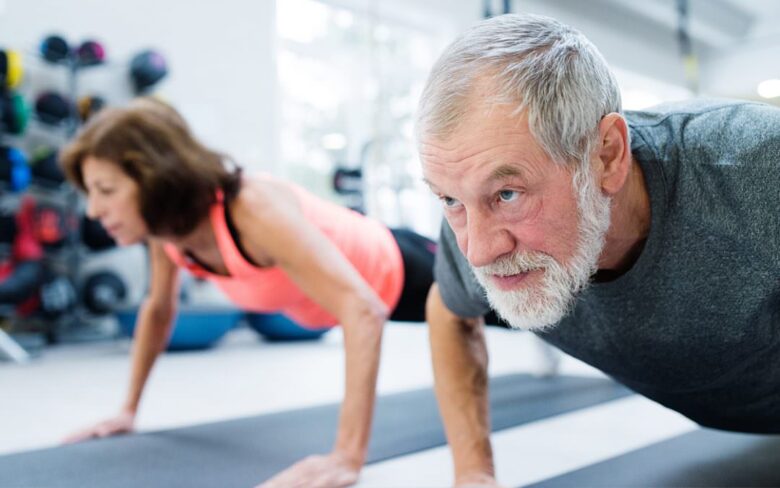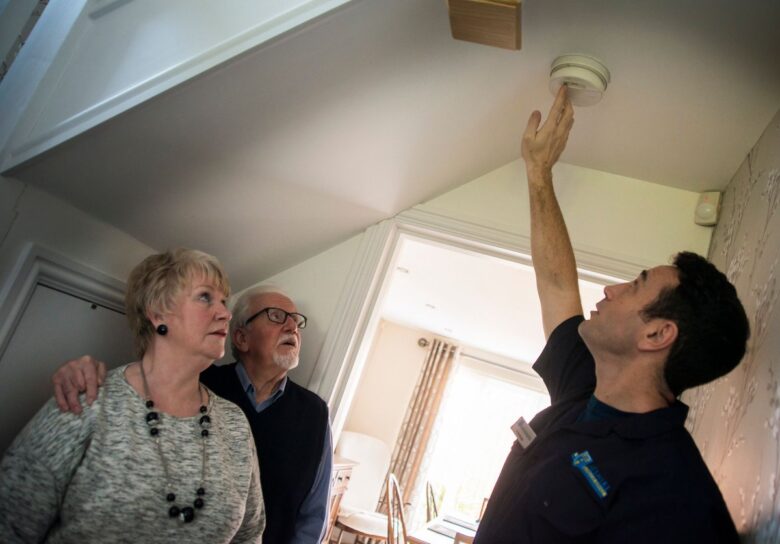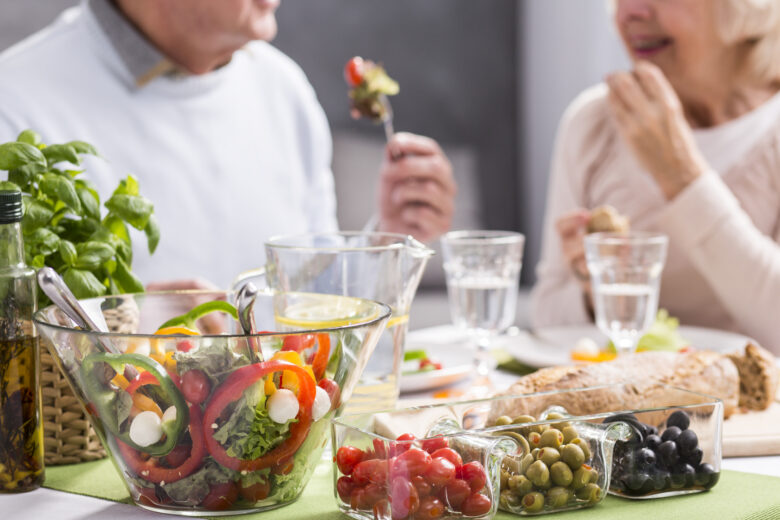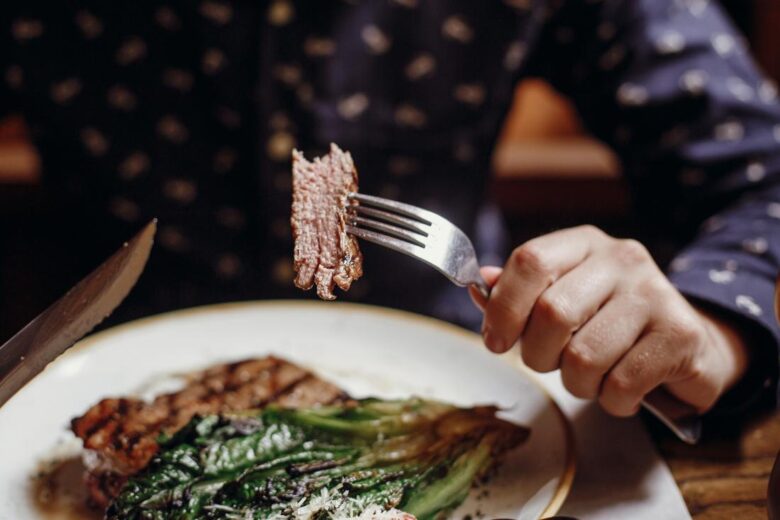Nowadays, the phenomenon of “elderly living alone” and “empty-nest elderly” is no longer a simple personal problem, but has become an urgent social proposition which is needed to be paid attention in modern society. As the empty-nest elderly grow older, their physiological functions gradually decline, and they tend to be less independent and they become more and more fragile both psychologically and physically. Here are some useful tips for the empty-nest elderly.
1. Regular Exercises

Muscles are an important part of the body, and delaying muscle decay is extremely important for maintaining mobility and health for the elderly. One of the most effective ways is to combine eating and exercise. It is generally believed that the elderly should exercise outdoors 1-2 times a day, about 1 hour each time, with slight sweating; or at least 6,000 steps per day.
Note that the exercise should be done within one’s ability. The activity should not be too much intense and the duration of the exercise should not be too long. But some people may be worried about the safety issue of the seniors, especially for the empty-nest elderly.
It is hard for the elderly who are trouble with stable walking to go out, but with an upright walker (for more details check OasisSpace), you don’t need to worry about it anymore. The upright walker is suitable for all terrains such as grass, gravel, mud, and crevices. The pneumatic tire has its own shock absorption function, which can pass uneven roads more smoothly.
At the same time, the metal frame can prevent punctures. It is easy to use and comfortable when you hold it. Just a simple squeeze can control the speed and push down to lock the brakes in a locked and parked position.
2. Fire Prevention

The building structure of the house where the elderly life should take into account the fire performance. The interior should be made of flame-retardant materials as much as possible, especially for the furniture which is near the stove in the kitchen and the lamps in the bedroom, and there should be no flammable and combustible materials (such as paper, cloth, gasoline, alcohol, etc.).
The household electric meter should be installed with a fuse that meets the standard, and cannot be replaced with other metal wires (such as copper wire, iron wire, etc.).
When household appliances are not in use, remember to turn them off and unplug the power supply. Set up casing for the part passing through the wall to prevent leakage and short circuit caused by the fraying wires. Regularly check whether the electrical lines in the home are damaged, whether the wires are exposed, hot, and whether the electrical appliances in the home are overloaded.
If the wires are found to be overloaded, they should be replaced in time. Regularly check the gas hose of the liquefied gas stove in the kitchen. When using gas appliances, people need to open the window for ventilation. Keep the flammable and explosive daily necessities such as perfume, nail polish, and lighters in a cool and dry place, and keep the distance from heat sources.
3. Balanced Diet

A regular health check is vitally important for the empty-nest elderly. They are likely to suffer from cardiovascular disease, etc. Living alone for the elderly not only has a great impact on their mental health, but over time, it is likely to threaten the physical health of the elderly.
Relevant data show that for the elderly who live alone the risk of having coronary heart disease and cardiovascular disease will be greatly increased. When aging, the body will gradually need more water to maintain. It is better to drink a small amount of water several times instead of drinking too much water one time. The daily water intake needs to reach 1500ml-1700ml and purified and boiled water is preferred.
Outdoor activities can help absorb ultraviolet light, which is conducive to the synthesis of vitamin D in the body and delays the process of osteoporosis. Foods such as milk, eggs, fish, mushrooms, and cauliflower are also rich in vitamin D. As long as you eat a balanced diet and under sunshine for 1 to 2 hours a day, most elderly people are not deficient in vitamin D.
It should be noted that if the elderly are using vitamin D supplements, they should be careful not to overdose. Old people can go to the hospital to check the serum 25-hydroxyvitamin D. If it is higher than 50mmol/L, they don’t need to take extra vitamin D supplements.
Vitamin C is very important to the human body. Its functions include participating in protein synthesis, enhancing the strength of blood vessel walls, reducing blood vessel fragility, reducing spontaneous bleeding, delaying arteriosclerosis, anti-oxidation, promoting iron absorption, and preventing anemia.
However, vitamin C cannot be synthesized by the human body, nor can it be stored in large quantities, so it needs to be supplemented. Green peppers, jujubes, strawberries, and other fresh vegetables and fruits are rich in vitamin C. Eating enough vegetables and fruits every day can meet the body’s need for vitamin C.
However, many elderly people have a bad appetite and eat a single food every day, which is prone to vitamin C deficiency. The elderly can take reasonable vitamin C supplements and eat various and enough fresh vegetables and fruits every day. Vitamin D, probiotics, dietary fiber, and vitamin C are nutrients that are essential for the elderly and can be reasonably supplemented by a balanced diet.
Seniors should absorb complete and balanced nutrition and have the balanced supplementation of carbohydrates, fats, proteins, dietary fibers, vitamins and trace elements, minerals, and other nutrition. Eat enough fruits and vegetables in daily diet.
On the one hand, increase the intake of high-quality protein-rich meat, such as sea fish, beans, and other foods, and on the other hand, keep doing aerobic exercise. The weight of the elderly should be maintained at a stable level, and should not be excessively demanding to lose weight.

Too high or too low weight will affect health. From the perspective of reducing the risk of malnutrition, the BMI of the elderly over the age of 70 should not be lower than 20kg/m2; when blood lipids and other indicators are normal, the upper-line of BMI can be slightly relaxed to 26kg/m2.
To sum up
It is not easy for the elderly to live alone. Lots of details are needed to be paid attention to. The absence of companionships and care from the children can easily cause physical and psychological problems. Seniors who live alone should have regular exercise and a balanced diet in daily life to keep healthy.
Communication with other people is also very important. Even though people may be hard to be accompanied by their parents due to study, work, or other reasons, people can express their love and care from other aspects. An upright walker is a perfect gift to show love to the elderly to make them walk more easily and securely.


